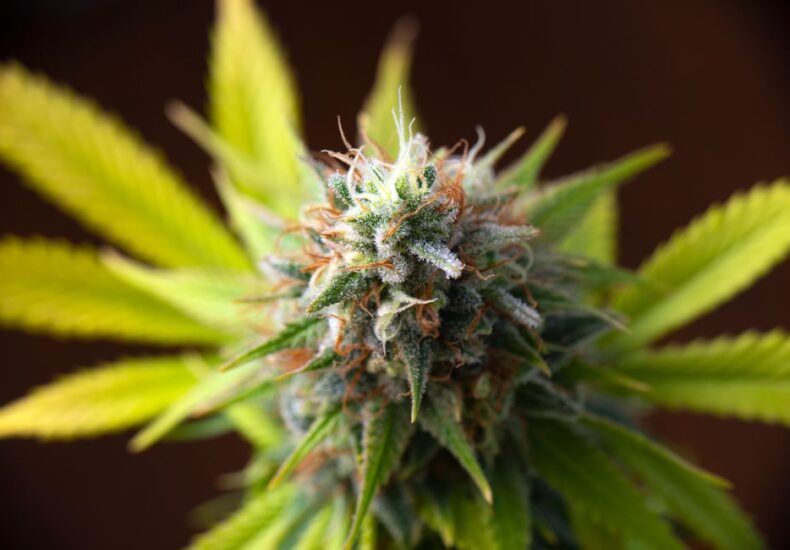
Unlocking Wellness with THCa Therapy
Unlocking Wellness with THCa Therapy
In recent years, the exploration of cannabis compounds has led to a deeper understanding of their potential health benefits. Among these compounds, Tetrahydrocannabinolic acid (THCa) has emerged as a promising candidate for therapeutic applications. This article delves into the potential of THCa therapy in promoting wellness, supported by scientific research and real-world examples.
Understanding THCa: The Basics
THCa is a non-psychoactive cannabinoid found in raw and live cannabis plants. Unlike its more famous counterpart, THC, THCa does not produce a high when consumed. This characteristic makes it an attractive option for those seeking the therapeutic benefits of cannabis without the psychoactive effects.
THCa is the precursor to THC. When cannabis is heated through smoking, vaping, or cooking, THCa undergoes decarboxylation, converting into THC. This transformation is why raw cannabis consumption is gaining attention for its potential health benefits without the psychoactive experience.
Potential Health Benefits of THCa
Research into THCa is still in its early stages, but preliminary findings suggest several potential health benefits:
- Anti-inflammatory Properties: Studies indicate that THCa may possess anti-inflammatory properties, making it a potential treatment for conditions like arthritis and lupus.
- Neuroprotective Effects: Research suggests that THCa may have neuroprotective qualities, which could be beneficial for neurodegenerative diseases such as Alzheimer’s and Parkinson’s.
- Anti-emetic Benefits: THCa has shown promise in reducing nausea and vomiting, particularly in patients undergoing chemotherapy.
- Appetite Stimulation: Similar to THC, THCa may help stimulate appetite, which can be beneficial for individuals with conditions that cause appetite loss.
Case Studies and Real-World Applications
Several case studies highlight the potential of THCa therapy in real-world scenarios. For instance, a study conducted by the University of California examined the effects of THCa on patients with epilepsy. The results showed a significant reduction in seizure frequency, offering hope for those who have not responded well to traditional treatments.
Another example comes from a patient with chronic pain who incorporated THCa into their treatment regimen. Over time, the patient reported a noticeable decrease in pain levels and an improvement in overall quality of life. These cases underscore the potential of THCa as a complementary therapy for various conditions.
Scientific Research and Statistics
While research on THCa is still developing, several studies provide valuable insights into its potential benefits. A study published in the British Journal of Pharmacology found that THCa exhibited anti-inflammatory effects in animal models, suggesting its potential for treating inflammatory conditions.
Additionally, a survey conducted by the National Center for Complementary and Integrative Health revealed that a significant percentage of cannabis users reported using raw cannabis for its perceived health benefits, including those attributed to THCa.
Incorporating THCa into Wellness Routines
For those interested in exploring THCa therapy, there are several ways to incorporate it into daily wellness routines:
- Raw Cannabis Juicing: Juicing raw cannabis leaves and flowers is a popular method for consuming THCa. This approach preserves the cannabinoid’s non-psychoactive properties while providing potential health benefits.
- THCa Tinctures: Tinctures made from raw cannabis can be added to food or beverages, offering a convenient way to consume THCa.
- Topical Applications: THCa-infused creams and balms can be applied directly to the skin, providing localized relief for inflammation and pain.
Challenges and Considerations
Despite its potential, THCa therapy faces several challenges. The legal status of cannabis varies widely across regions, affecting the availability and accessibility of THCa products. Additionally, the lack of standardized dosing guidelines can make it difficult for individuals to determine the appropriate amount for their needs.
Another consideration is the need for more comprehensive research. While preliminary studies are promising, further investigation is necessary to fully understand the therapeutic potential and safety profile of THCa.
Conclusion
THCa therapy represents an exciting frontier in the pursuit of wellness. With its non-psychoactive nature and potential health benefits, THCa offers a unique approach to addressing various conditions. As research continues to unfold, the therapeutic landscape of THCa is likely to expand, providing new opportunities for individuals seeking alternative wellness solutions.
By exploring the potential of THCa, individuals can make informed decisions about incorporating this cannabinoid into their wellness routines. As with any therapeutic approach, consulting with healthcare professionals and staying informed about the latest research are key steps in unlocking the full potential of THCa therapy.
- The Good, the Bad, and the Ugly: Lear Funding Client Insights
- The Good, the Bad, and the Ugly: Lear Capital Customer Insights
- .” What’s Developing? The Latest Trends in Useful Beverage Innovations.”
- “A Beginner’s Guide To Understanding Medicinal Qualities & Uses.
- An All-natural Service: Just How CBD Oil Can Aid Relieve Arthritis in Dogs